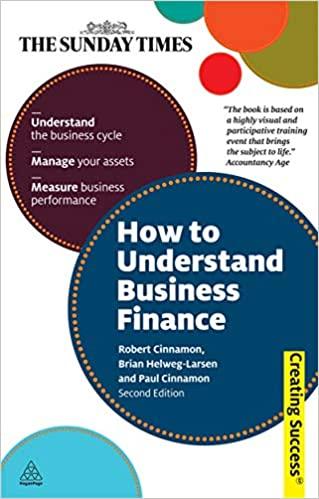Answered step by step
Verified Expert Solution
Question
1 Approved Answer
topic: asymmetric information please show all work!!! Suppose you own a company which you expect will earn the following set of state-contingent profits, prior to
topic: asymmetric information
Suppose you own a company which you expect will earn the following set of state-contingent profits, prior to compensating your company's manager: As shown here, state-contingent profits depend jointly on the state of the economy and the manager's effort level. Specifically, if the manager selects a low effort level, then your business is less profitable than when the manager selects a high effort level; specifically, E ( loweffort) =$40 million compared with E(higheffort)=$50 million . The manager's utility U(W)={WunderloweffortW250underhigheffort and her initial wealth is W0=$0. Therefore, "minus 250" indicates the manager's disutility associated with expending high rather than low effort. As the risk neutral owner of this company, you wish to maximize expected profit, net of the cost of the manager's compensation. You are considering three mutually exclusive compensation schemes: - Compensation Scheme \#1: a fixed salary of $2,000,000; - Compensation Scheme \#2: a payment of 7 percent of profits; or - Compensation Scheme \#3; a salary of $1,600,000 plus 25% of any profits above $50 million. Calculate the manager's expected utility for each compensation scheme, under low and high effort scenarios. Also calculate expected profit for each compensation scheme, under low and high effort scenarios. As this company's owner, which compensation scheme will you select, and why? Problem \#2 (50 points) Assume that all drivers are risk averse with utility U(W)=W. Each driver has cash in the amount of $1,000 and owns a car worth $3,500 (thus initial wealth W0=$4,500 for all drivers). However, drivers have different probabilities of crashing their cars; some are high risk (pH=30%), some are medium risk (pM=20%), and others are low risk (pL=10%). There are only two states of the world, crash and no crash. In the crash state, drivers suffer a total loss; i.e., cars become worthless whenever crashes occur. Insurance is available, although it is not compulsory. Thus, drivers insure themselves only if the expected utility of being insured exceeds the expected utility of going without insurance. While insurers know that there are equal numbers of high, medium, and low risk drivers, there is asymmetric information; specifically, insurers cannot identify which drivers are high, medium, and low risk. A. SomeStates Insurance Company is a monopolist; it has no competitors, so insurance can only be obtained from SomeStates. SomeStates offers full (=1) coverage insurance policies for $700. Which drivers purchase policies at this price, and which drivers go without insuranoe? What is SomeStates Insurance Company's average profit (or loss) per policy sold? B. Suppose SomeStates Insurance Company raises the price for full coverage insurance policies from $700 to $875. At this price, which drivers purchase policies and which drivers go without insurance? What is SomeStates Insurance Company's average profit (or lass) per policy sold, given this increase in price? C. Suppose a new insurance company (Regressive Insurance Company) is formed for the purpose of challenging SomeStates Insurance Company's monopoly. Regressive offers three different policies: 1) a full coverage (=1) policy for $1,000,2) a partial coverage (=4) policy for $280, and 3) a partial coverage (=.15) policy for $52.50. Which policies offered by Regressive and SomeStates (if any) will high, medium, and low risk drivers select in this more competitive environment? D. What impact will Regressive's entry into the insurance market have upon the average profit (or loss) per policy sold by SomeStates Insurance Company? E. What is the average profit (or loss) per policy sold by Regressive Insurance Company? 2 please show all work!!! 



Step by Step Solution
There are 3 Steps involved in it
Step: 1

Get Instant Access to Expert-Tailored Solutions
See step-by-step solutions with expert insights and AI powered tools for academic success
Step: 2

Step: 3

Ace Your Homework with AI
Get the answers you need in no time with our AI-driven, step-by-step assistance
Get Started


